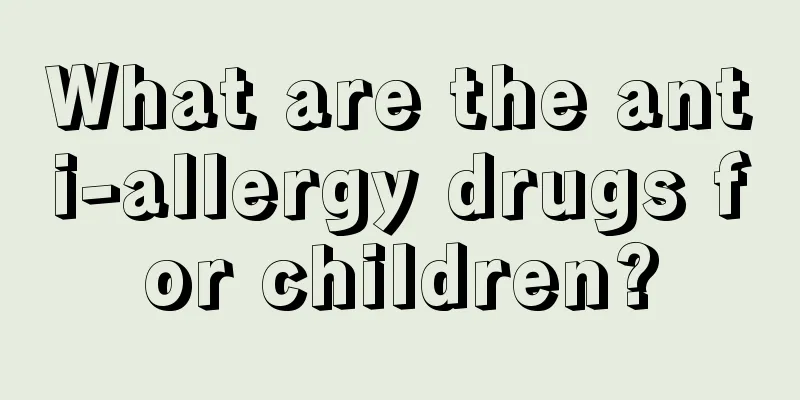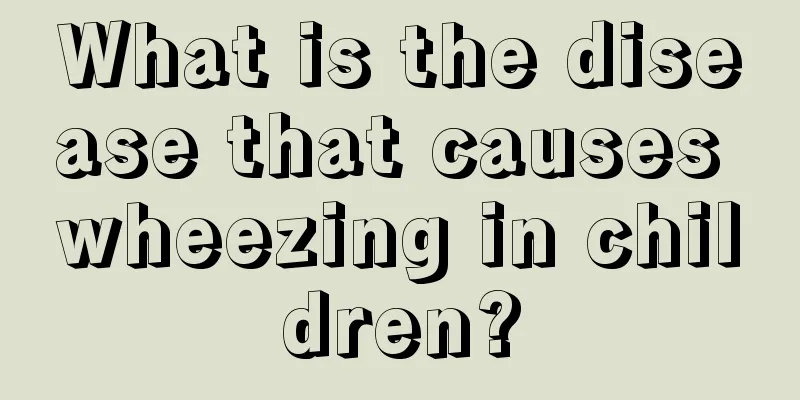What are the anti-allergy drugs for children?

|
Children's immunity is relatively low, so if they are not well taken care of, they will suffer from allergies. Therefore, parents must fully understand their baby's physical condition so that they can avoid allergens. If allergies have already occurred, they can only use some anti-allergic drugs, which are mainly Western medicines, such as some glucocorticoid drugs. It can mainly antagonize the effects of mediators that cause allergic reactions (such as histamine) on their receptors (such as histamine H1 receptors). It can completely counteract the smooth muscle contraction and spasm caused by histamine by competitively blocking the H1 receptors on the bronchial, gastrointestinal and uterine smooth muscles. It can significantly counteract the increased capillary permeability and local congestion and edema caused by histamine. It can partially counteract the effects of histamine in dilating blood vessels and lowering blood pressure. It has no protective effect against anaphylactic shock in humans. Some of these drugs have certain central nervous system inhibitory and anticholine effects, which may lead to some common adverse reactions. Commonly used drugs in clinical practice include chlorpheniramine, diphenhydramine, cyproheptadine and cetirizine. Newborns and premature infants are highly sensitive to the anticholine effects of histamine H1 receptor antagonists and should not use them; antihistamines can inhibit skin test reactions to allergenic substances, so all antihistamines should be stopped several days before the skin test to avoid affecting the skin test results. Antiallergic drugs all have side effects. It is not advisable to take a certain antiallergic drug for a long time or in large doses. Otherwise, it will not only easily cause the drug to become ineffective, but in severe cases, various adverse reactions and even toxic side effects will occur. If you need to take other western medicines while taking anti-allergic drugs, be sure to consult a doctor. Histamine H1 receptor antagonists are mainly used for allergic diseases of the skin and mucous membranes, such as urticaria, allergic rhinitis, and skin itching and edema caused by insect bites; they have an antipruritic effect on itching caused by serum sickness, drug rash, and contact dermatitis; they have poor efficacy on allergic bronchial asthma; and are ineffective for anaphylactic shock. Allergic reaction, also known as allergic reaction, refers to tissue damage or physiological dysfunction caused by the body's stimulation by antigenic substances. It is an immune pathological damage process. Drugs that prevent and treat allergic diseases caused by various antigenic substances (such as bacteria, viruses, parasites, pollen, etc.) are anti-allergic drugs, also known as anti-allergic drugs. |
<<: Can babies eat lychees when they have diarrhea?
>>: Is it good for children to drink lactic acid bacteria drinks?
Recommend
What symptoms will children with congenital heart disease have?
Although the current medical level is relatively ...
What should I do if my baby has poor cognitive abilities?
Children will face many problems in the process o...
Can the baby take a bath after the injection?
It is better not to give the baby a bath immediat...
What to do if baby's hair grows slowly
Parents are particularly concerned about their ch...
What medicine should children take for rhinitis and cough
Children's cough caused by rhinitis has a hig...
Clinical manifestations of bronchopneumonia in children
The health of children is what parents are most c...
Why does my child's butt smell?
As a baby grows, various problems will always ari...
Will children with cerebral palsy suck their fingers? The situation is actually very complicated!
Many babies suck their fingers. In most cases, th...
Neonatal Sepsis
A baby is the jewel of a family, and every parent...
What medicine is effective for children with rhinitis
Rhinitis in children is very harmful and can caus...
Prevention and care of bloating in infants
Young children's bodies have relatively poor ...
Can children's refractive error be cured?
For children, if refraction occurs, it is not goo...
Why does my 21-month-old baby not like to eat?
We all know that only a normal diet can provide t...
Treatment methods for children with yellow face and thin muscles
Babies should pay special attention to their dail...
What is the best time to wean your baby?
Families with babies always worry that their chil...









